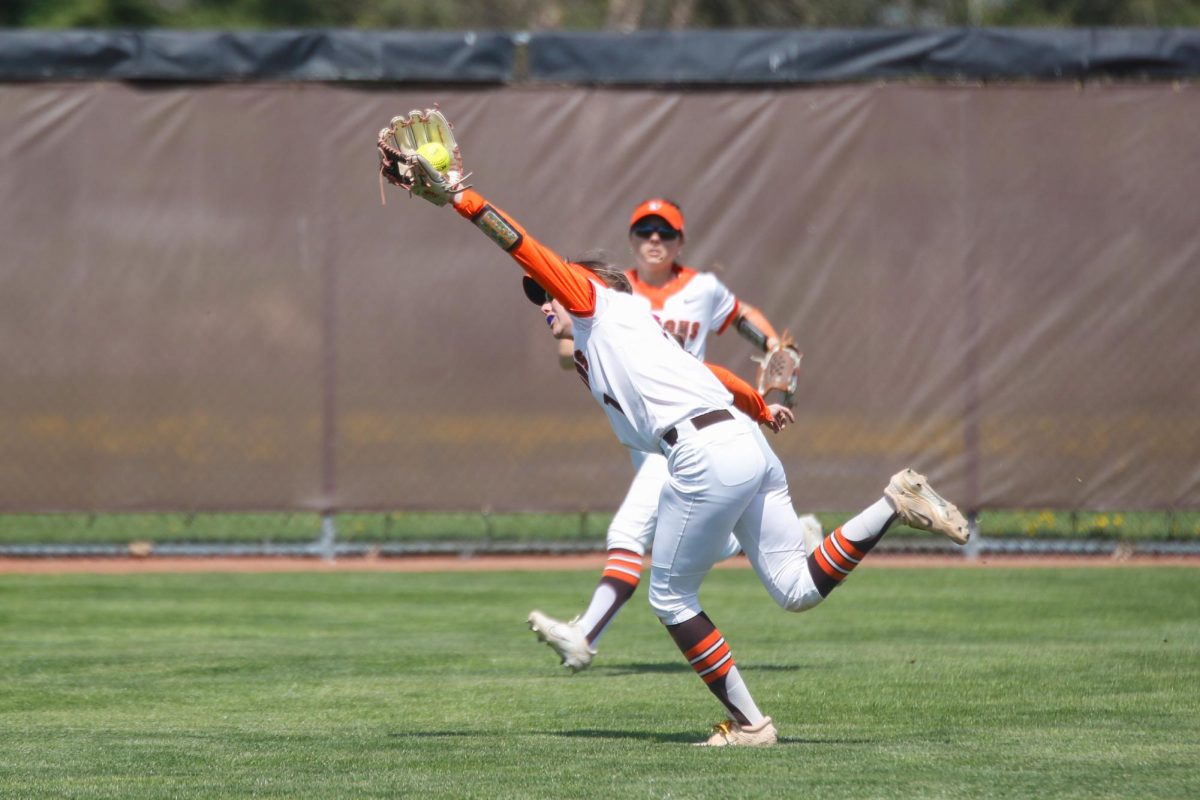A few tears, a lot of cheers, people rushing up to John Bragg and Rebecca Fitch to congratulate them. A simple scene that concluded two weeks of intensive electoral campaigning.
The Undergraduate Student Government now has a new president and vice-president.
‘I thought it was going to be a good outcome,’ Bragg said.
‘Becca and I have a lot of work to do now. We’re going to start by working on that platform.’
For the first time, USG has an African-American president. Winning with 1,173 votes out of a total of 2,785, Bragg and Fitch will be inducted tognight by former USG president and vice-president Marcos Popovich and Rebecca Nieto.
‘The student body can feel confident and assured that they have the best leaders at the helm of USG for next year,’ Nieto said.
‘Marcos and I are going to help them through the transition. They both have excellent experience within organizations which will make the process more smooth.’
Freimarck and Brandt came second with 979 votes, and Engelman and Pelzer third with 486 votes.
More students voted in this year’s USG elections than in any previous ones with a voter turn out of 2,785 students. Last year’s election attracted 1,541 voters.
‘We set a new BG record in USG elections this year,’ said Nick Gresko, Chair of the USG Elections and Opinions Board. ‘The national average for the election of student government is between 11 and 12 percent.’ The University’s USG elections received 18.7 percent of the student vote.
‘I am so grateful, I just want to thank the student body for being so active during the elections,’ Nieto said. ‘These numbers are excellent.’
Gresko attributed part of this year’s voters turnout to the increased media coverage USG has received this year.
‘The students finally realized how USG can affect the students,’ Gresko said. ‘They are finding out that USG has power and that it can really change their lives here on campus.’
According to him, the Graduate Student Senate also helped the process by allocating a significant amount of money to finance the USG presidential campaign. This money helped to pay for flyers, ads, posters and public relations.
Also, the USG Elections and Opinions Board was responsible for setting up several voting stations at locations around campus.
‘We were going to bring the elections to the voters,’ Gresko said.
Amanda Myers, also a member of the EOB board, said she attributes the voter turnout to the efforts of the candidates rather than the number of polling stations.
‘Unfortunately, most people came to vote because they were handed flyers in front of the voting stations.’ she said.
Next year, USG plans to keep a similar strategy for the elections, with only two small changes.
USG hopes to implement an on-line voting process, which would allow students to vote from computers. USG may also shorten voting station time from four days to two days. Gresko said that four days were very hard for the candidates, who actively campaigned in front of the voting station and had to miss a lot of classes.
But even if the voter turnout for USG elections has increased, the majority of the campus had ignored the elections.
‘It’s great that so many people came out to vote,’ said Engelman. ‘But there should be at least 50 percent of our campus voting.’















